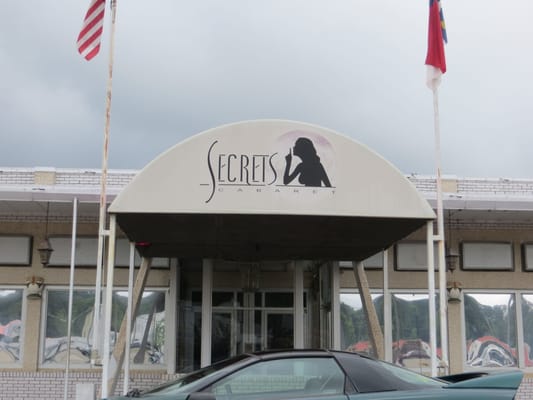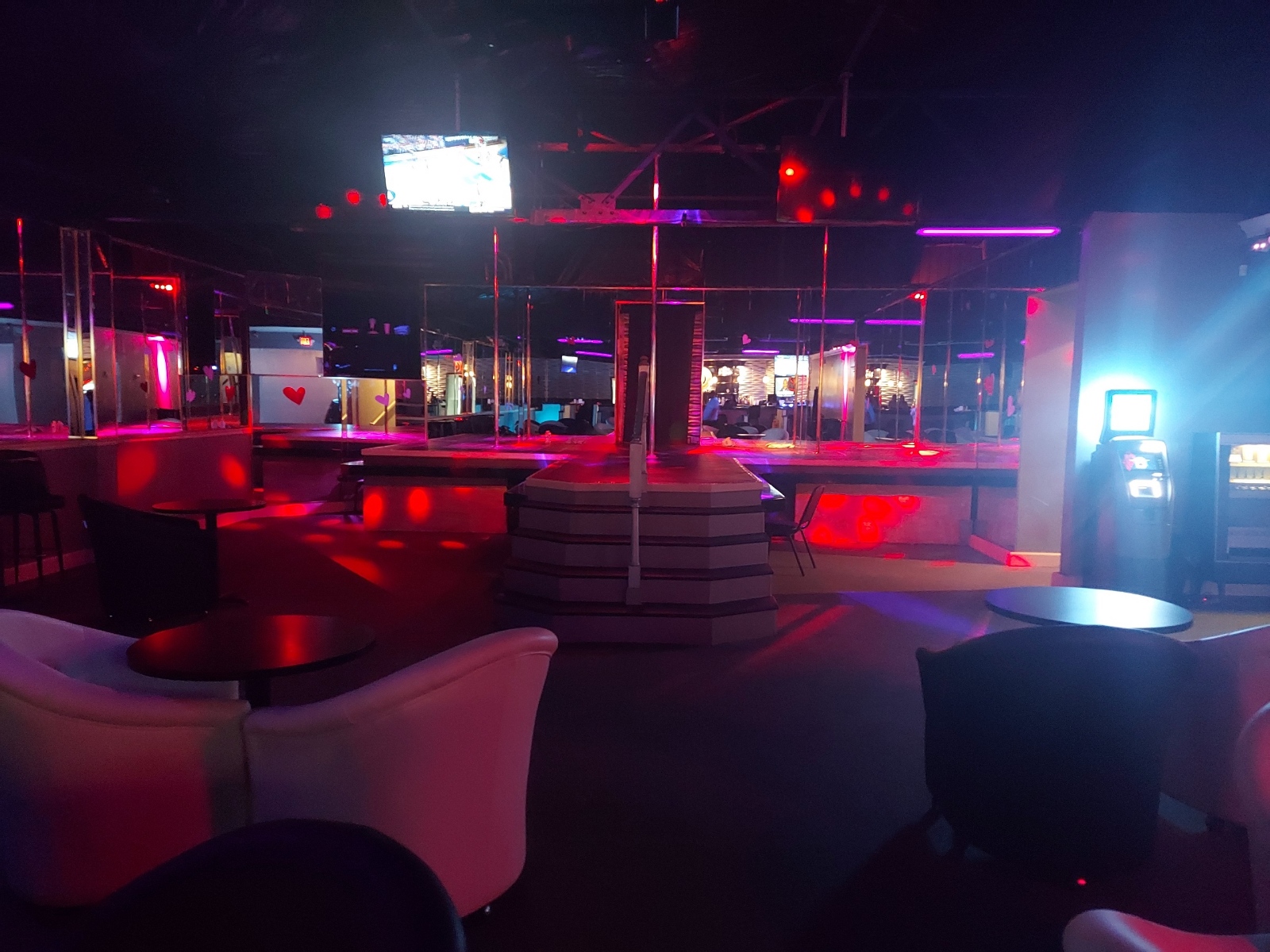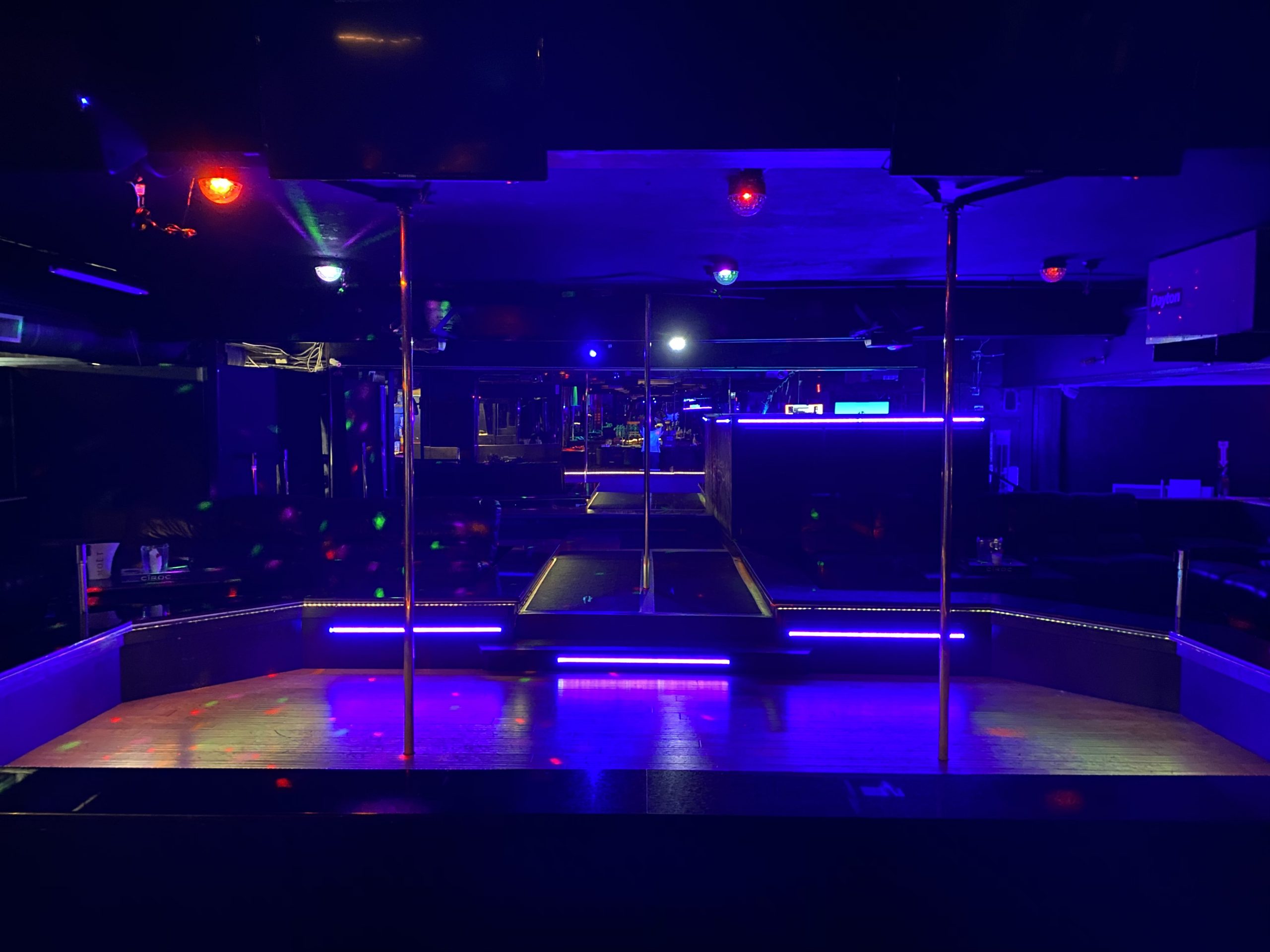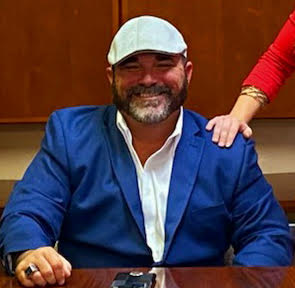(Note: This story appears in the March 2021 issue of ED Magazine)
Scott Hendrix is familiar with the roar of war, but these days he much more prefers the quiet-er calm of success as the owner of nine adult clubs.
Editor’s note: This “Club Chain Spotlight” is a brand-new section that will appear in upcoming issues of ED Magazine. We will be highlighting multi-unit adult nightclub operators from across the US, featuring interviews with key players within these organizations. Each of these club chain owners has a story to tell. It will be the goal of the Club Chain Spotlights to tell the stories of some of the industry’s multi-unit club operators.
When Scott Hendrix left the Air Force and invested as a silent partner in a few adult clubs with his former first sergeant, little did he know his future would be in the gentlemen’s club industry as anything but a silent partner. Six months after his initial investment, Hendrix’s partner returned his investment with significant interest.
Hendrix immediately decided to become more involved. He became an active partner, primarily working in the back office, with his finance background. Hendrix soon started buying clubs on his own, at first primarily in Florida, then into the Carolinas, where he’s mostly vested today with five of his nine adult clubs.
ED’s Legal Correspondent Larry Kaplan caught up with Hendrix to discuss how his military experience prepared him for his current career, how he’s faring working amid COVID-19, the difference between his markets, and more!

ED: What did you do in the military?
HENDRIX: I served six years active duty and two years reserve in the Air Force. I was in the first Gulf War in Operation Desert Storm. I was in-country for eight months. Then I was stationed at Joint Special Operations Command at Ft. Bragg, North Carolina. I was a forward air controller.
ED: Did your military experience help to prepare you for the adult nightclub industry?
HENDRIX: Without a doubt. You know how our business is; you never know what’s coming when you walk into your club on a Friday night. That’s very similar to warfare. The same discipline the military requires is necessary to run a club effectively. I’ve never seen an undisciplined individual be successful in this industry for long. I’ve observed willy-nilly operators who end up paying for it. One way or the other, you learn to be disciplined. You learn budgeting either because you’re broke or because you don’t want to be broke.
ED: You have nine adult clubs. What are their names, and where are they?
HENDRIX: I have two in Florida: The Cheetah, Daytona, and The Cheetah, Pensacola. Five in South Carolina: The Cheetah and The Southern Belle, Charleston, Generation X, North Charleston, The Trophy Club, Greenville, and Ponytails, Florence. One in Georgia, Red Carpet, Brunswick; and one in North Carolina, Secrets, Fayetteville. I bought Secrets for sentimental reasons because I was stationed there at Ft. Bragg.
ED: I understand you stumbled into a COVID-19 testing business?
HENDRIX: I was trying to source COVID-19 testing kits last April to keep our clubs open. That turned into a business for me. I have three clinics in Florida with two doctors doing about 150 rapid tests a week. We’re in line to administer vaccines soon.
ED: As we understand, you bought two of Jay Levy’s clubs after his passing. Is this correct? How did you come to know Jay?
HENDRIX: Yes. Jay was a tremendous guy. You can tell a lot about an employer by the longevity of their management. He employed at least three managers for 20-plus years. Before buying the clubs, Jay and I crossed paths as South Carolina operators, became friends, and shared information.
“You never know what’s coming when you walk into your club on a Friday night. That’s very similar to warfare. The same discipline the military requires is necessary to run a club effectively. I’ve never seen an undisciplined individual be successful in this industry for long.” — Scott Hendrix
ED: What have you encountered working in this industry that’s surprised you?
HENDRIX: The compliance issues have become much more challenging. We’ve gone from club owners to risk managers. You can’t run mom-and-pop clubs anymore. You must institute appropriate policies and procedures and continuously update them. When I started, you didn’t need an accountant till year’s end. Now I have a full-time accountant and attorney. I had hoped the industry would be a lot more fun by this point. I still have fun, but with all the regulations and potential liabilities, it’s become more risk management than an entertainment business.
ED: You recently joined the ACE National adult nightclub association board. Why is that important to you?
HENDRIX: Club operators tend to operate individually and not come together except at EXPO and through the association. We must dramatically increase our lobbying. I see why ACE was created. It needs to be 10 times stronger than ever because we know the new administration won’t let up. Unfortunately, I don’t think all of our peers see the value in an association, though they really should. COVID-19 taught me there’s an urgent need for our industry to have a more prominent political presence.
ED: What is similar with this industry to other industries you’ve worked in?
HENDRIX: Basic principles of business all apply. Definitely fiscal discipline, and at the end of the day, it’s all about the customer experience. Our job is to make guys feel special when they walk through our door. It’s the same at McDonald’s. We’re no different than any other business; our products are just different.
ED: Are there any common denominators in your club markets?
HENDRIX: I like being the big fish in the small pond, if possible. We like the hometown feel and relationship with customers, and we’ve gone with that wherever we go. That’s our M.O. Our managers know most of our customers. They tend to come back. We don’t get many tourists, except for Charleston. In many cases, these have become neighborhood bars.
ED: Putting aside operating under COVID-19, which of your markets is the most competitive?
HENDRIX: Definitely Charleston with the most competitors. We have some regulars, but overall, we lack that local relationship because Charleston’s a huge wedding destination. We don’t have the name recognition and competitive edge we do in our other markets to maintain market share. Luckily, our Cheetah club has been number one there for 17 years, but we’ve had to work very hard for it. We also have the Southern Belle, an after-hours club right next door that’s been there for 25 years. You walk out one door and in the other, then stay till 4 a.m. I call it a strip mall for strip clubs.

ED: What are the advantages of operating multiple clubs? Does it allow you to move staff or entertainers around, if necessary?
HENDRIX: Absolutely. Especially since geographically, we’re relatively close. It’s a car ride, rather than a flight between clubs. With uniform policies and procedures at all the clubs, an entertainer knows if she travels from Charleston to Daytona, she’ll be treated the same as at her home club. This provides a massive advantage for recruiting talent. Multiple clubs also provide buying power. The management costs decrease when you put less on a GM. With a regional office, managers can concentrate on driving revenue and enforcing our policies, rather than excessive paperwork.
ED: How much corporate staff do you have?
HENDRIX: I have an attorney, a comptroller, a secretary, and a corporate operations manager.
ED: What are some of the specific challenges of operating multiple clubs at the same time?
HENDRIX: Maintaining consistency, like any corporation. Even with uniform policies, procedures, and expectations, there are personalities involved. Some people will enforce those things more than others; that’s where the drop-off comes.
The other challenge is time. With multiple clubs, it’s much harder for me to remain involved in each entity. I try to make a surprise visit to each club at least quarterly. The regional managers visit each club at least monthly.
ED: How many of your clubs are open now despite COVID-19?
HENDRIX: They’re all open. North Carolina is the most restrictive. We have to stop serving at 9 p.m. South Carolina is 11 p.m., and Florida has few restrictions.

ED: What have been the biggest challenges you’ve faced from the start of COVID-19 until now? And how have you dealt with these challenges?
HENDRIX: Opening safely is the challenge. Business-wise, this outbreak has hurt us tremendously. We’re faced with the enormous financial challenge of trying to keep things afloat to provide work for our people while worrying that as a result of doing so, no matter how careful we are, someone could get deathly ill.
ED: When do you expect club operations to be back to normal? And what do you see as the most significant challenges to get there?
HENDRIX: I defer to the doctors at my clinics, who tell me the vaccines are helping tremendously, as long as the variants don’t slow things down. They believe Florida will be back to normal by early-summer, with schools and sports resuming in the fall.
ED: For the EXPO, what subjects are you most interested in seeing addressed during the convention’s seminars?
HENDRIX: I’m most interested in the legal seminar, which in my opinion, should touch on hiring full-time industry lobbyists, both at the federal and levels. Secondarily, I’m also interested in technologies to deal with the next pandemic.
“Unfortunately, I don’t think all of our peers see the value in an association, though they really should. COVID–19 taught me there’s an urgent need for our industry to have a more prominent political presence.” — Scott Hendrix
ED: Do you consider yourself a “club chain owner”?
HENDRIX: I call myself a serial entrepreneur, rather than a club chain owner. I’ve got commercial buildings and other types of businesses.
ED: You have three Cheetahs clubs in Charleston, Daytona, and Pensacola. Your three Charleston clubs could never all be named Cheetahs. But have you thought of branding any of the others as Cheetahs?
HENDRIX: Yes, we have. We’ll hold onto a club for a while and if the demographics are right, revamp it into a Cheetah model. My other clubs have been more recently acquired, so I’ll get them running as I want and then revamp them into Cheetahs. I won’t revamp the Trophy Club in Greenville out of respect for Jay and his family. It’s been there for years, and he built a good business. It has a great name and employees who’ve worked there 20-plus years. I haven’t changed a thing; there’s no reason to.
ED: Aside from the basics (customer service, beautiful entertainers, inviting atmosphere, etc.), what is the common denominator of your clubs?
HENDRIX: It’s consistency. We’ve had the same management team for, on average, at least 10 years and a very consistent atmosphere. That’s what separates us from everybody else in our markets.
ED: Has COVID-19 forced you to alter any expansion or contraction plans for your clubs?
HENDRIX: We’ve actually been able to add Brunswick to the portfolio during COVID-19. But there is a vacant lot I bought in one of our markets to build a club. That’s on hold for now.

ED: Can you detail any new practices or strategies you’ve adopted that you’ll keep around once COVID-19 is in the rear-view mirror and why?
HENDRIX: We’ll maintain our new hygiene procedures. We’ve added an antiviral/antimicrobial cleaning product that coats the hard surfaces in our clubs and kills anything for up to 30 days. I think the more-savvy operators have become more sticklers for hygiene practices both for the employees and the club.
Larry Kaplan has for 20 years been the Legal Correspondent for ED Publications. Mr. Kaplan is a business broker in the sale and purchase of adult nightclubs and adult retail stores and the Executive Director of the ACE of Michigan adult nightclub state trade association. Contact Larry Kaplan at 313-815-3311 or email larry@kaplanclubsales.com.





























